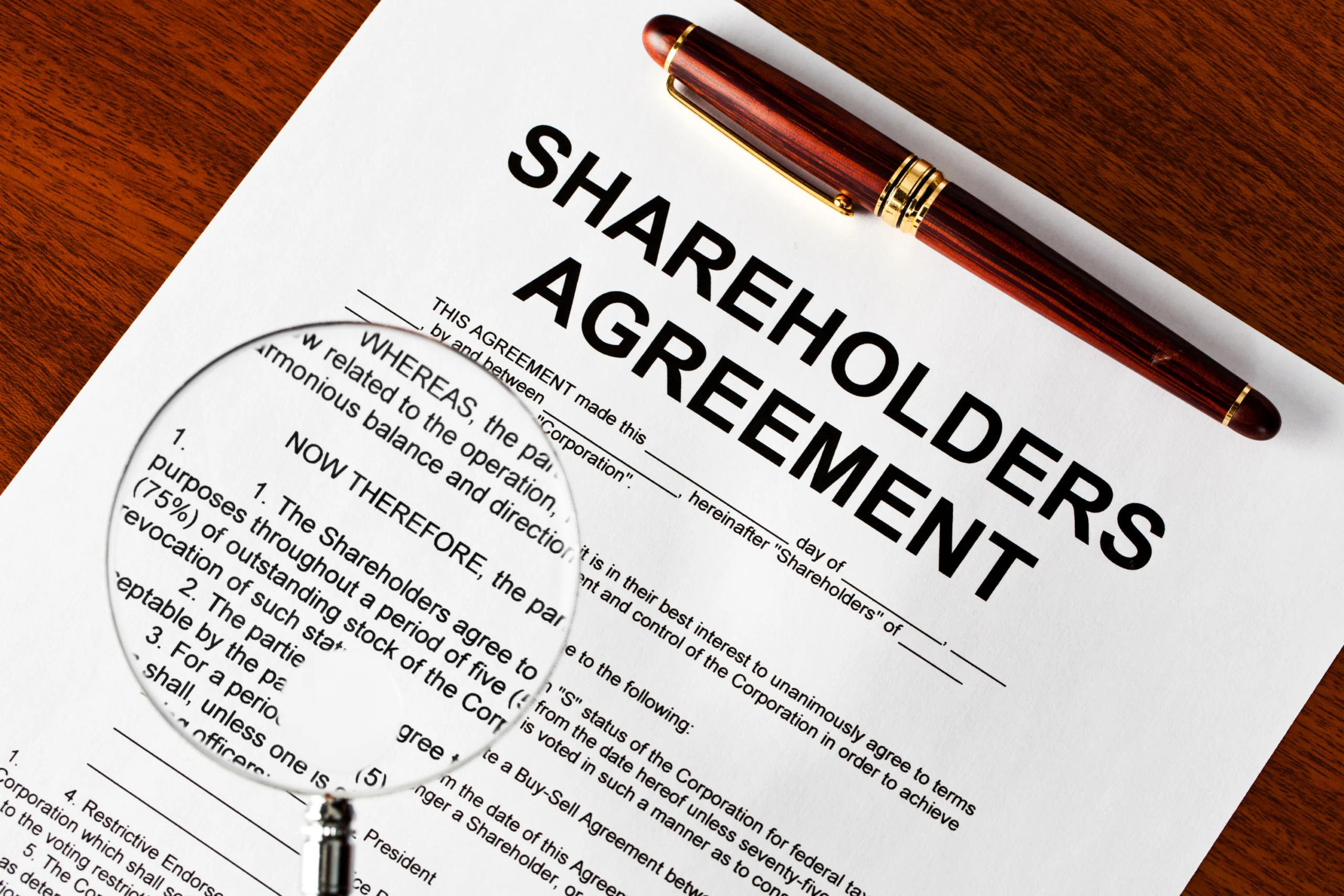Being a shareholder in a company offers you a stake in its financial success—but what if you’re not a director? Can you still influence the business? What exactly are your rights and responsibilities?
At Black and White Accounting, we know that understanding the relationship between shareholders and directors is key to navigating your role effectively. Whether you’re a small shareholder or a significant investor, understanding your position within the company can empower you to make informed decisions. In this blog, we’ll break down what it means to be a shareholder without being a director, and how you can leverage your role to protect your interests.
What Is a Shareholder?
A shareholder, also known as a stockholder or member, is an individual or entity that owns one or more shares in a company. Shares represent ownership in the company, which means shareholders have a financial interest in the business’s success. Depending on how many shares you own, you may also have voting rights on important company matters. However, shareholders are not responsible for the day-to-day management of the company—that’s the job of the directors.
Your Rights as a Shareholder (Without Being a Director)
As a shareholder, you may not have direct control over the company’s operations, but you still have important rights that protect your investment. Here’s what you can expect:
1. The Right to Vote on Major Decisions
One of the most significant rights you have as a shareholder is the right to vote on major company decisions. This includes matters such as:
- Appointing or removing directors
- Approving significant changes to the company’s structure or operations (such as mergers or acquisitions)
- Issuing new shares or altering the rights attached to existing shares
The weight of your vote is usually proportional to the number of shares you hold. For example, if you own 10% of the shares, you typically have 10% of the voting power. Even though you’re not directly involved in managing the company, your vote on these big issues can influence its future direction.
2. The Right to Dividends
If the company makes a profit and chooses to distribute some of those profits to its shareholders, you have the right to receive dividends. However, it’s important to note that dividends are not guaranteed; directors must first decide to declare dividends, and the company must be in a financially stable position to make these payments.
Dividends are usually paid in proportion to the number of shares you own, meaning the more shares you hold, the bigger your potential payout.
3. The Right to Inspect Company Records
As a shareholder, you have the right to inspect certain company records, including the company’s annual financial accounts. This transparency is essential to ensure that directors are managing the company responsibly and in the shareholders’ best interests. You can request access to statutory records and financial documents, allowing you to keep an eye on how the company is performing.
4. The Right to Call a General Meeting
Shareholders with a significant enough stake (usually 5% or more) have the right to call a general meeting if they believe an important issue needs to be discussed. This can be particularly useful if you feel that the directors are not acting in the best interests of the shareholders, or if you want to bring a significant issue to the attention of the company.
5. The Right to a Share of Assets Upon Liquidation
In the unfortunate event that the company is wound up (liquidated), shareholders have the right to receive a portion of the company’s remaining assets, after all debts and liabilities have been paid. However, creditors are paid first, so shareholders typically receive their share only if there’s anything left over.
Your Responsibilities as a Shareholder
While shareholders enjoy a variety of rights, they also have certain responsibilities to the company:
1. Paying for Shares
If you’ve agreed to purchase shares in the company, your primary responsibility is to pay for those shares in full. Whether you’ve bought them directly from the company during an initial offering or through a private sale, ensuring that your shares are paid for is a legal obligation.
2. Compliance with Shareholder Agreements
If there’s a shareholder agreement in place, you must adhere to its terms. Shareholder agreements outline how the business is run, the rights and obligations of shareholders, and how certain situations (like selling shares) will be handled. It’s crucial to understand the agreement and follow its rules, as failure to do so could result in legal consequences.
3. Respecting Company Decisions
While shareholders have voting rights, they must also accept the outcome of decisions made in accordance with the company’s articles of association. If the majority of shareholders vote in favor of a particular action, all shareholders are typically bound by that decision, even if they disagree with the result.
What You Don’t Have as a Shareholder (Without Being a Director)
If you’re a shareholder but not a director, there are a few things you won’t have control over:
- No Day-to-Day Management: Directors are responsible for the operational and strategic decisions of the company. As a shareholder, you don’t get involved in the daily running of the business or in decisions like hiring, marketing, or customer management. You also, for example, might not have access to the company bank account.
- Limited Influence on Strategy: While you can vote on major decisions, you won’t have direct control over the company’s strategy unless you’re also a director or hold significant shares that give you more influence.
- No Automatic Right to Profits: Dividends are not guaranteed. Directors decide whether to declare dividends based on the company’s financial health and future needs, so shareholders may not receive regular payouts if the company is reinvesting profits or facing financial challenges.
Can You Still Influence the Business?
Even if you’re not a director, you can still influence the company’s direction—especially if you hold a significant number of shares. Here’s how you can leverage your position:
1. Build Strong Relationships with Directors
Developing a good relationship with the company’s directors can help ensure your voice is heard. If you’re a significant shareholder, directors may seek your input on important decisions, even if you don’t have a formal role in management.
2. Exercise Your Voting Rights
Make sure to vote in shareholder meetings. Whether it’s to appoint new directors, approve key business strategies, or vote on the company’s future direction, exercising your voting rights gives you a say in how the business is run.
3. Stay Informed
By regularly reviewing the company’s financial statements, staying up to date on business news, and attending shareholder meetings, you can make sure you’re fully informed about the company’s performance and direction. Being an active shareholder helps you protect your investment and make strategic decisions.
The Bottom Line: A Unique Role with Important Powers
Being a shareholder but not a director puts you in a unique position. While you don’t have the day-to-day control over the company, you still hold significant rights that allow you to influence major decisions, protect your investment, and potentially profit from the company’s success. Understanding these rights—and your responsibilities—ensures you’re fully equipped to make the most of your role.
At Black and White Accounting, we help shareholders understand their legal position, maximise their influence, and protect their investments. Whether you’re a new investor or a seasoned shareholder, we’re here to guide you through every step.
Let’s Talk: Want to understand your rights as a shareholder? Contact us today for expert advice on maximising your role and protecting your investment in the company.


